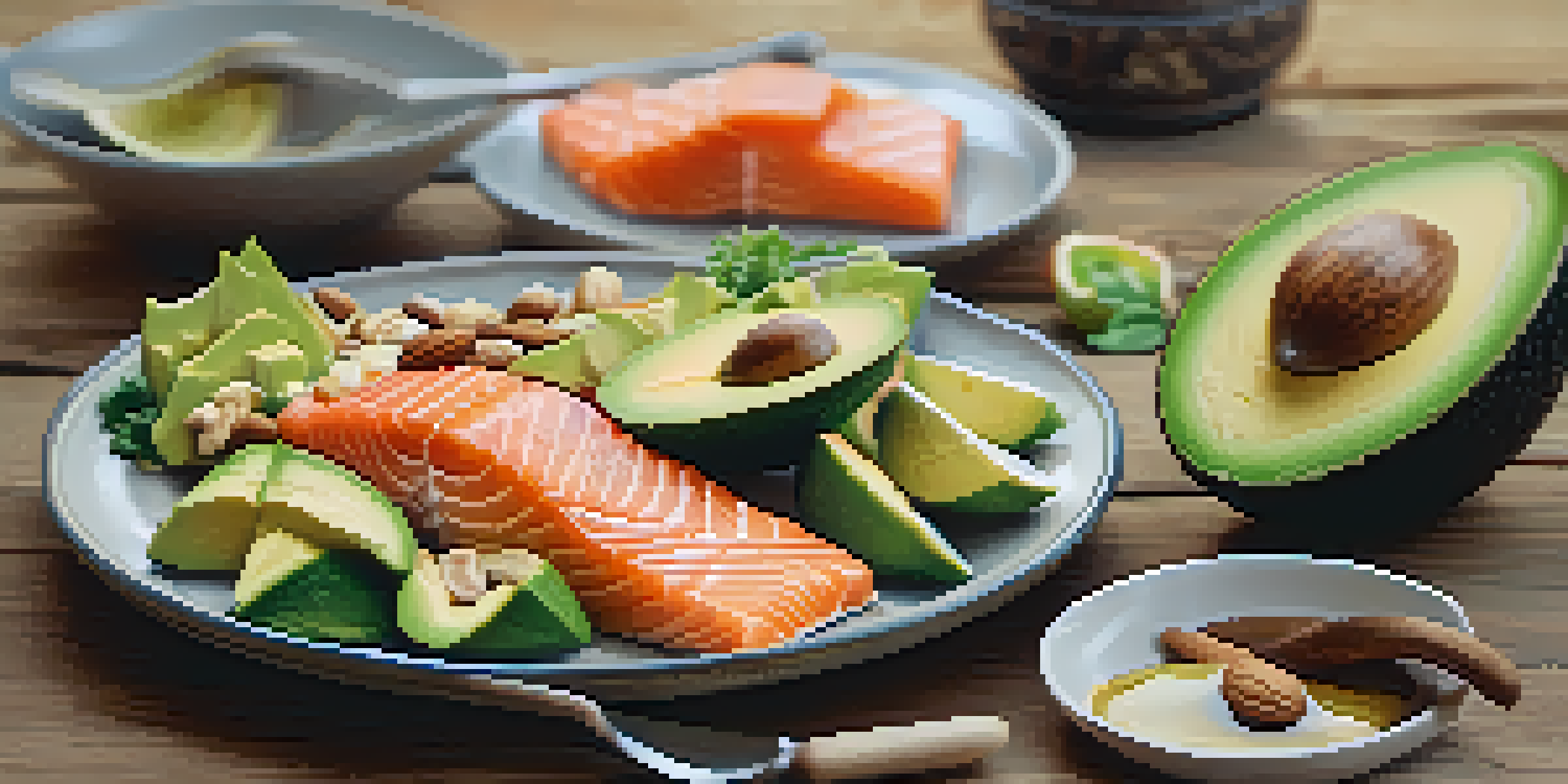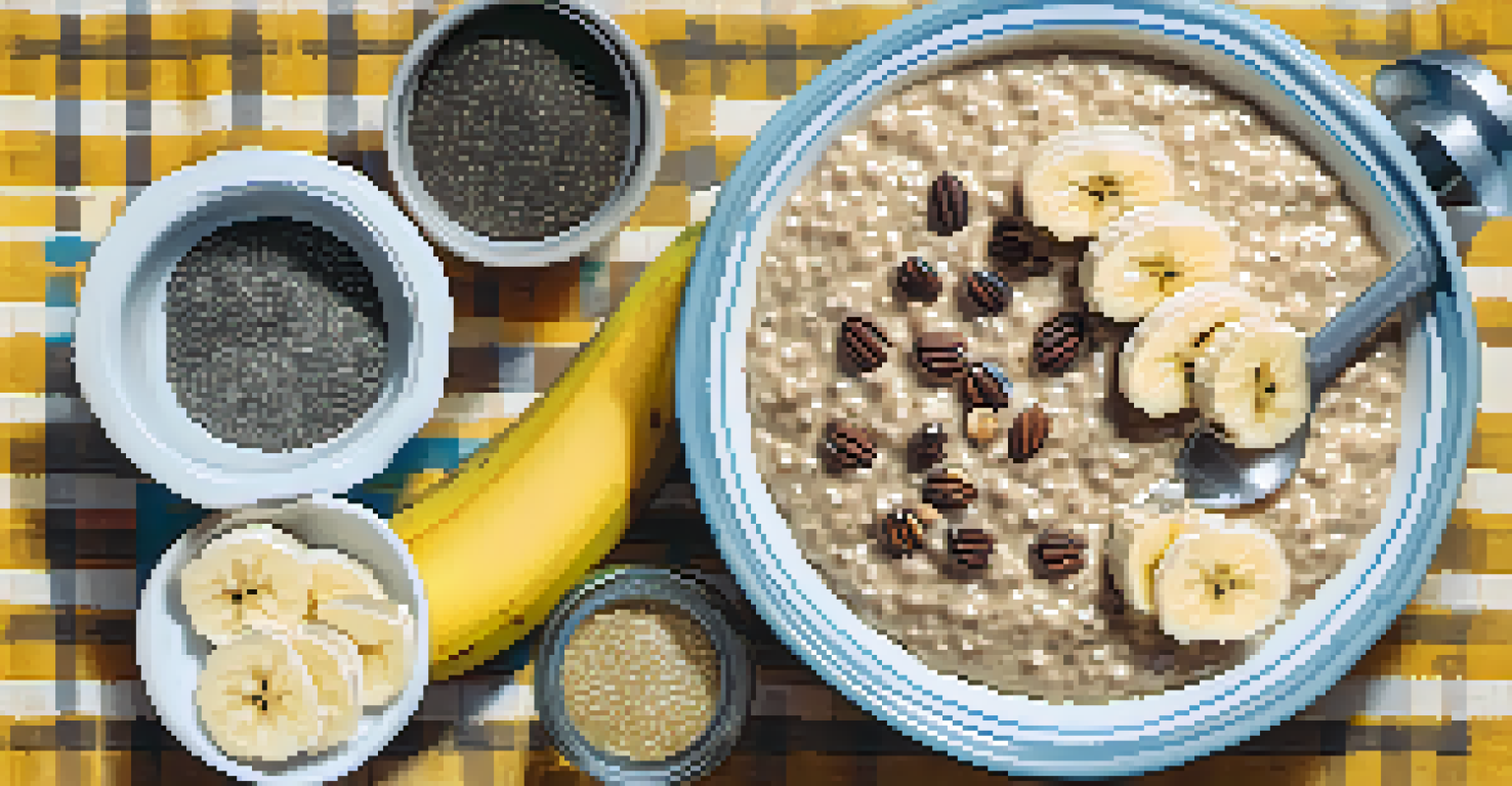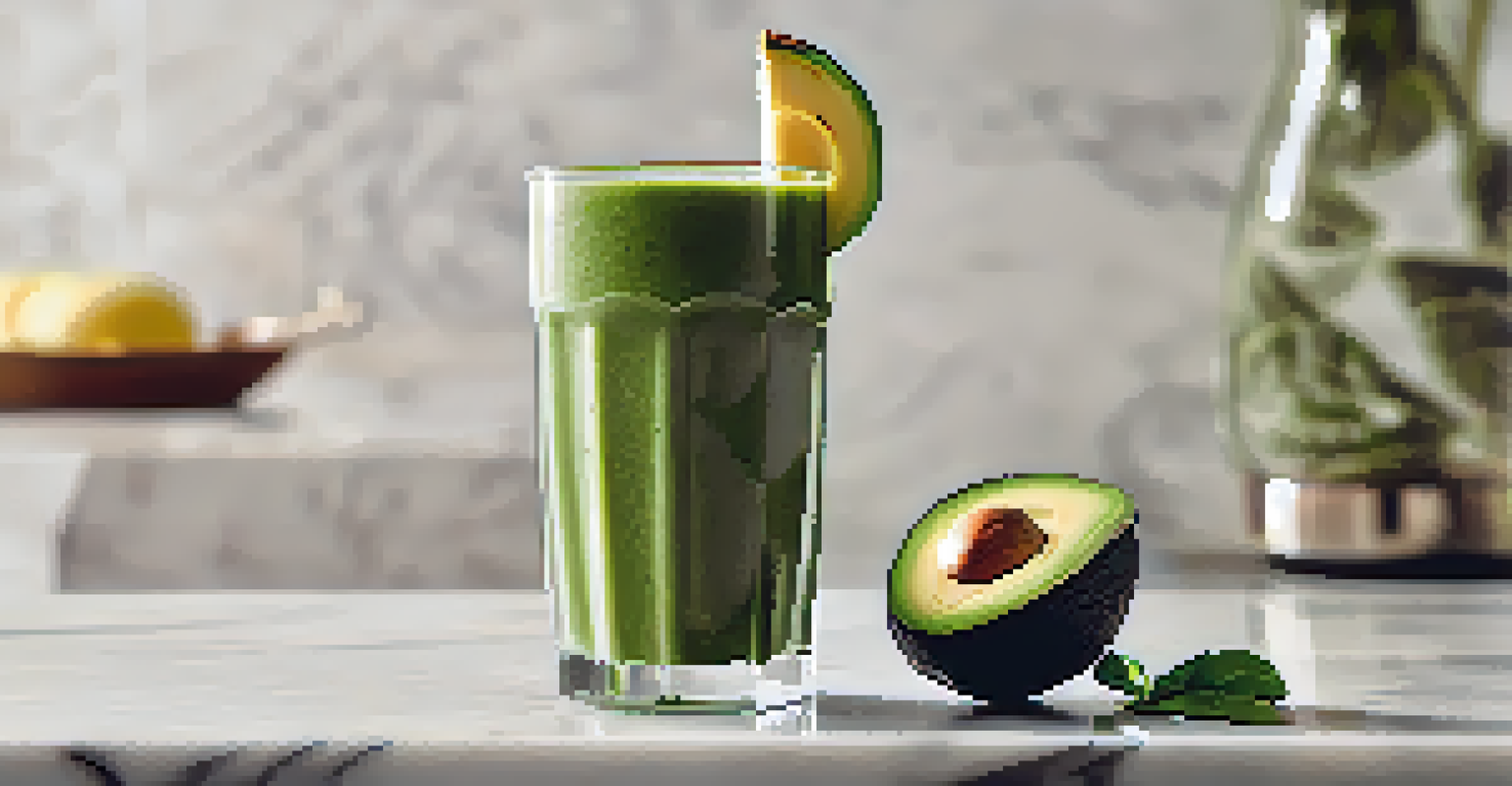The Importance of Fats: Essential Dietary Fats for Powerlifters

Understanding Dietary Fats: A Powerlifter's Guide
Dietary fats often get a bad rap, but they play a crucial role in a powerlifter's diet. Unlike carbs and proteins, fats are essential for hormone production, energy storage, and nutrient absorption. This means that healthy fats can help powerlifters perform at their best and recover efficiently after heavy lifts.
You are what you eat, so don't be fast, cheap, easy, or fake.
Incorporating the right types of fats can significantly impact your overall performance. For instance, monounsaturated fats, found in foods like avocados and olive oil, support heart health and improve muscle recovery. On the other hand, omega-3 fatty acids, found in fish and flaxseeds, help reduce inflammation, which can be beneficial after intense training sessions.
By understanding the role of fats, powerlifters can make informed choices about their diets. This knowledge empowers them to fuel their bodies effectively, allowing them to focus on lifting heavier weights and achieving their strength goals.
Healthy Fats: Types Every Powerlifter Should Include
When it comes to dietary fats, not all are created equal. Powerlifters should focus on incorporating healthy fats into their meals for optimal performance. This includes sources like avocados, nuts, seeds, and fatty fish, all of which provide essential nutrients without unwanted additives.

Saturated fats, often found in processed foods and red meats, should be consumed in moderation. While they can have a place in a balanced diet, relying too heavily on these fats can lead to health issues and hinder performance. Instead, prioritize unsaturated fats to boost your energy levels and overall health.
Healthy Fats Fuel Performance
Incorporating healthy fats like avocados and omega-3s helps powerlifters enhance energy levels, hormone production, and recovery.
Trans fats are another category to avoid, as they can negatively impact cardiovascular health and lead to inflammation. By being mindful of fat sources, powerlifters can ensure they're fueling their bodies with the right kinds of fats to support their rigorous training regimens.
The Role of Fats in Hormone Production for Lifters
Hormones play a vital role in muscle growth and recovery, and fats are integral to hormone production. For powerlifters, testosterone is particularly important, as it aids in muscle development and strength gains. Consuming healthy fats can help maintain optimal hormone levels, which is crucial for peak performance.
Healthy fats are essential for your body and brain to function at their peak ability.
Cholesterol, often misunderstood, is actually a type of fat that's essential for producing hormones. Including sources of healthy fats in your diet can ensure your body has the building blocks it needs to produce hormones effectively. This, in turn, can lead to better energy levels and improved strength.
Moreover, a balanced fat intake can help manage cortisol levels, a hormone linked to stress. By keeping cortisol in check, powerlifters can focus on their training without the added burden of stress-related fatigue.
Fats and Recovery: How They Aid Muscle Repair
Recovery is a critical aspect of any powerlifting regimen, and fats can play a supportive role in this process. Consuming healthy fats post-workout helps the body repair damaged muscle tissues and replenish energy stores. This is essential for powerlifters who push their limits during training.
Omega-3 fatty acids, in particular, are known for their anti-inflammatory properties, making them a great addition to a recovery meal. Foods like salmon or walnuts can help reduce muscle soreness and speed up recovery times, allowing lifters to get back to training sooner.
Balance is Key for Fat Intake
Powerlifters should aim for fats to comprise 20-35% of their total caloric intake, adjusting based on individual training goals.
Additionally, incorporating fats into meals can enhance the absorption of fat-soluble vitamins, like vitamins A, D, E, and K, which are important for overall health and recovery. This means that a well-rounded diet with healthy fats can support a powerlifter's recovery strategy.
Balancing Fats: How Much Should Powerlifters Consume?
Determining the right amount of fat to include in a powerlifter's diet can be tricky, as it varies based on individual goals and energy needs. A general guideline is that fats should make up about 20-35% of total daily caloric intake. However, listening to your body and adjusting your intake based on how you feel is key.
For instance, during intense training phases, you may need more fats to sustain energy levels and support recovery. On the other hand, when cutting weight, you might want to adjust your fat intake while ensuring you're still getting enough essential nutrients.
Working with a nutritionist or dietitian can help tailor a fat intake plan that aligns with your specific needs as a powerlifter. This personalized approach ensures you're not only fueling your body correctly but also optimizing your performance.
Incorporating Fats into Meals: Practical Tips
Incorporating healthy fats into your meals doesn't have to be complicated. Start by adding a scoop of nut butter to your morning oatmeal or tossing some avocado into your smoothie. These small changes can make a big difference in your overall fat intake without sacrificing taste.
Another easy way to include fats is by choosing cooking oils wisely. Instead of using butter or margarine, opt for olive oil or coconut oil, which can add flavor while providing healthy fats. Drizzling oil over roasted veggies or using it in dressings can enhance your meals nutritionally.
Misconceptions About Dietary Fats
Many powerlifters mistakenly believe all fats are bad, but healthy fats are essential for energy, hormone production, and overall health.
Finally, snacking is a great opportunity to add healthy fats to your diet. Grab a handful of mixed nuts or some hummus with veggies for a satisfying and nutritious snack that will keep you fueled throughout the day.
Common Misconceptions About Fats in Powerlifting
Despite their importance, fats are often misunderstood, leading to common misconceptions among powerlifters. One major myth is that consuming fat will make you gain weight. In reality, when eaten in moderation and as part of a balanced diet, healthy fats can contribute to muscle gain and overall health.
Another misconception is that all fats are bad. The truth is, your body needs certain fats for energy, hormone production, and nutrient absorption. By focusing on healthy sources and avoiding trans fats, you can enjoy the benefits without the drawbacks.

Lastly, some lifters may think they can achieve strength goals without adequate fat intake. However, neglecting dietary fats can lead to hormonal imbalances, poor recovery, and ultimately, hindered performance. Understanding the role of fats can help powerlifters make informed dietary choices.